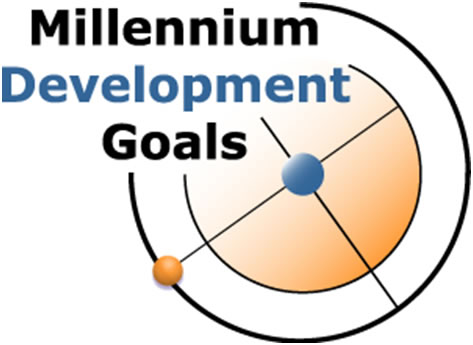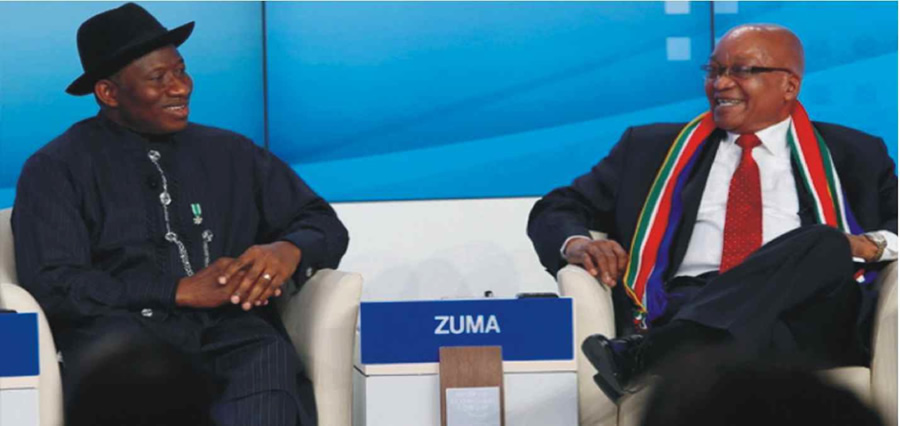By Prof. Chidi Onyia
It is a pleasure to join you here in Paris, France to discuss Africa’s future and education system in the transition to a knowledge-based economy. “Education and Africa’s Future: Developing a Knowledge-based Economy,” which is the theme of this conference, is essentially the overarching message across developing and developed nations. It is the hope of every leader gathered here that Africa progressively and systematically close the education and development gap with the rest of the world. This outcome will help the people of Africa have access to standards of living that are comparable to those available elsewhere.
Throughout the world today, people from all walks of life feel uneasy. Despite dazzling technology advances, improved standards of leaving and increase in democratic governance, the gap between the ‘haves’ and ‘have-nots’ continue to increase across Africa. In January 2005 at the World Economic Forum, Tony Blair, the British Prime Minister made a comment that I believe is important for our continent and its human assets to move from an industrial model of education deficit to a knowledge-based value model. He said:
“We may disagree about the nature of the problems and how to resolve them, but
no nation, however powerful, seriously believes today that these problems can be
resolved alone. Interdependence is no longer disputed.”
As we speak of nations, we make reference to its leadership and human assets. We must appreciate that indeed there has never been a time when the social, economic, ecological and learning conditions that challenge leaders in any part of the world have been so interwoven with what is occurring many other places. The implication is that there are no longer pockets of islands doing there own thing and expecting the impact, positive or negative to reflect only within their geographical boundaries. We have several examples of the ripple effects of bad governance and disingenuous economic planning across Africa. Having said that, I believe the main purpose for this session of the conference is to explore networking strategies between Africa Diaspora and African leadership leading to a productive and learning collaboration.
The African Diaspora estimated at ten million have often influenced western and eastern government policy-makers in their strategies and activities implemented towards Africa; from America, Europe and Asia, the African Diaspora through transnational networks build up social, economic and political bridges channeling wealth, information, innovative ideas, intellectual capacities, skills, and creative business practices from the West to Africa.
According to research on African Diaspora network in the Netherlands, these conclusions were reached in the study and can help us align the lessons learned to our current focus:
- African Diaspora is linked to vast transnational networks at different levels.
- African Diaspora profits from the possibilities and windows of opportunity offered by global networks. Although linkage may be low level, the advantages of transnational networks allow the African Diaspora to gain a strategic position which enables them to build up social, economic and political bridges with valuable benefits.
- It also makes them an indispensable human agency for channeling wealth, information, innovative ideas, intellectual capacities and skills and creative business practices from the West to Africa.
- However, despite all the valuable benefits they dispense, African Diaspora in the Netherlands still operate at the margins of the society because of the weak social, economic and political position in which they find themselves.
- Compounding these disadvantages is the fact that most of the African Diaspora organisations and associations suffer from severe capacity constraints (AfroNeth 2003).
Let’s look at the identified need stated in this study and explore the opportunities inherent in moving forward as a continent bearing in mind that the foundation of value creation and quality of life for all citizens of Africa begins in the quality of our education system. I will speak about the role of Africans in Diaspora as an asset to African leaders using the education system as a case study. Given the abject poverty in much of Africa, this discussion is urgently needed. Now, more than ever, it is vital to improve our understanding of the African Diaspora and their contribution to the reduction of poverty and development in Africa.
It is important to bear in mind that the selection of the education system is in line with the focus of this conference but more importantly the outcomes of all other disciplines and functions are contingent on the quality of this system. Let’s take a moment and reflect on the different reform efforts we have participated in or witnessed across the Africa continent in the past decade. Of all these initiatives and restructuring, we are yet to identify a model that can be replicated across the content- of course bearing in mind that there are various contextual issues that we must take into consideration in our replication plan.
These key areas of contribution can support African leaders set the foundation for any proposed reform effort:
- Rethinking our habits of mind for identifying a need is a critical area of support. Part of what most western governments require in identifying a need is looking at multiple data sets to anchor both performance indicators and implementation process. This expectation makes it natural for most Africans in Diaspora that have worked on these multiple western projects to always look for the evidence leading to their decisions. The essence of creating this pattern of reform, especially in the education system is that it removes the subjectivity that has plagued our current learning environment.
Africans in diaspora can support African leaders in developing a robust data management system that can inform the decisions they make for their people. This collaboration will afford African leaders at all levels of the governance structure a clear path to align their intent to strategic objectives identified in their vision for their people.
- External funding to support education reform leading to productive learning. There are so many grant awarding foundations, Non governmental organizations (NGOs) and business organizations that want to support the quality of education in Africa and some of the times, the lack of access hinders these opportunities from reaching their intended audience. African in Diaspora through their various disciplinary and interdisciplinary collaborations have access to these extra funding information. The importance of these extra funding sources go beyond the obvious financial benefits- It also helps support the culture of teaching, learning and research across our education system.
- Redesigning our assessment instrument and learning expectations across disciplines and function to reflect international standards and 21st Century learning skills. The current assessment mindset for most African continues to create the unproductive learning outcomes we experience across the continent. Take for instance our leadership thinking for measuring teaching, learning and research at all levels of the school system. It is obvious that it shows a gap between local learning outcomes and international knowledge outcomes. This education gap has led to our current education debt. Africans in Diaspora can support the redesigning process by collaborating with key education leadership, policy makers and international assessment entities like OECD’s Programme for International Student Assessment (PISA). Presently only one Africa country is participating in the global assessment for 15 years old students administered by OECD’s programme. Tunisia is still not meeting the levels of countries like Singapore and Finland, but we must commend their leadership for using international standards to measure their future comparative advantage.
- Science Technology Engineering and Mathematics advisory and funding support. The need to enhance Africa’s knowledge base in the fields of science, technology, engineering and mathematics (STEM) cannot be over emphasized. African Diaspora can assist African leadership and scientists to build collaborations with centers of excellence globally. The essence for this mutually beneficial relationship is the need to restructure our curriculum and instructional focus to reflect an understanding of the 21st century learning expectations. African Diaspora can assist local scientists in identifying cutting-edge technologies that will support the research focus of these institutions. Furthermore, African Diaspora can provide the technical assistance needed to support projects in fields that deal with renewable energy, biogenetics and nanotechnology to mention just a few.
Conclusion:
It is fair to say that Africa’s growth and development has been strengthened by the African Diaspora. Research has shown that the added value in terms of insights, knowledge of local conditions and networks, cultural experience, empathy and sensitiveness, intellectual capacities and skills that the African Diaspora gain and subsequently offer to the enrichment of Africa is relatively substantial. Therefore, it will seem logical for both parties- African Diaspora and Leadership, to explore the most effective collaboration methods that will meet the needs of our continent.
African leaders should bare in mind that there are about ten million Africans in Diaspora who have often influenced western and eastern government policy-makers as it relates to their policy formulation focus, collaboration strategies and financial activities towards Africa. The question I pose to all African leaders at different levels of the governance structure is:
“what lessons have we learnt in the past decade collectively and individually regarding our collaboration or networking patterns and how has these patterns improved or hindered our vision for sustainable development across disciplines and functions in Africa?”
My guess is that each leader present today has a story to tell with ample justifications for our current educational and economic state. It is my hope that this conference will build the bridge towards credible transnational networks that will support the development of social, educational, economic and political bridges. This bridge I believe will channel human and material wealth, information, innovative ideas, intellectual capacities, skills, and creative business practices from the West to Africa.



